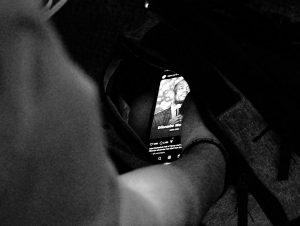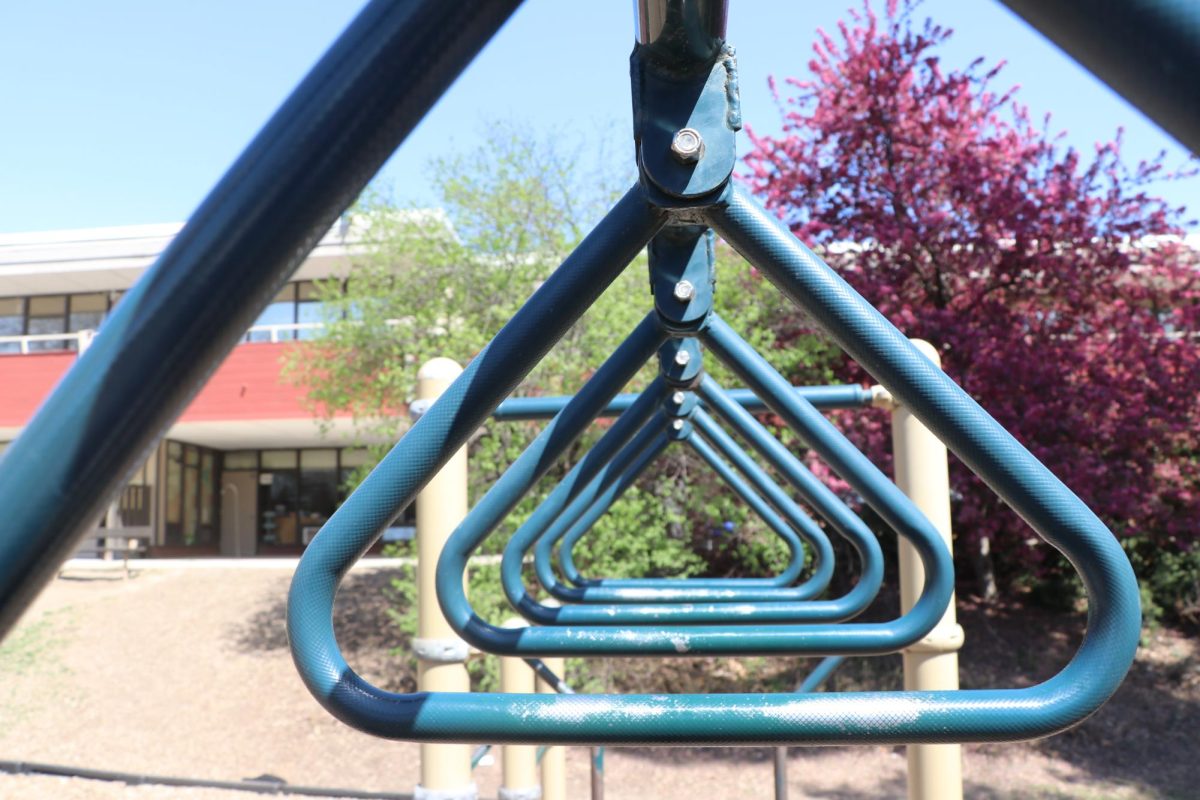This year, our school has undergone substantial changes. Construction has started on a new building, and we have welcomed new faces to the campus, including new faculty and staff. Among the most controversial changes is the upper school’s new phone policy, which has sparked a heated mix of opinions, false information, and conflicting feelings.

Before we dive in, here is a link to the student handbook detailing all the rules regarding the phone policy on page 31 (Student Family Handbook 2024-25). The administration has clarified many concerns students have raised. For instance, some argue, “But in the real world they won’t take my phone!” If students read the handbook, they will find that this has been addressed. On page 32, it states, “While cell phones are prevalent in modern society, there are many contexts where their usage is restricted or inappropriate, such as during meetings, exams, or professional settings. By enforcing a no cell phone policy, we will prepare students for similar expectations in college, the workplace, and other formal settings.”
As a student, I understand the frustration of not being able to use my phone. However, it’s important to recognize that, in the real world, scrolling through Instagram during the workday is inappropriate and a waste of an employer’s time. Another concern is the prohibition of cell phones during study halls, passing periods, and lunchtime. The handbook explains, “Excessive cell phone use can hinder students’ interpersonal communication skills. By restricting cell phone use during school hours, teachers can encourage face-to-face interaction among students, fostering better communication skills, empathy, and social development.” Reducing screen time allows students to engage in more real-life conversations instead of hiding behind their devices. Many have argued that they need their phones to socialize or that they use them to relax. However, relying on your phone for communication can negatively impact mental health, as detailed in the handbook. It’s not truly social if you’re texting someone sitting across the table. Later in this article, I will discuss research showing that using technology to “wind down and relax” is often ineffective; it can leave you feeling numb and disengaged.
After extensive research on the topic of cell phones in schools, I found compelling evidence supporting BT’s new policy. The Association of Computing Machinery states that “Three weeks of separation were enough to influence teenagers’ level of technological anxiety/dependence, which has dropped significantly along with their positive attitudes towards media and technology. The teenagers’ fear of missing out was found to be correlated with technological anxiety/dependence and neuroticism.” This research shows that just three weeks without phones can significantly improve teenagers’ mental health. Anxiety disorders related to phone usage have been widely documented, particularly social anxiety. This does not mean being anxious when talking to someone in person; in fact, it signifies the opposite. The Canadian Review of Sociology notes that “‘Addiction’ to internet-connected technology continues to dominate media discourses of young people. Researchers have identified negative outcomes, including decreased mental health, resulting from anxieties related to technology, e.g., a fear of missing out and social connectivity related to online technologies.” This finding reiterates the detrimental effects of technology on young people’s mental health, which can lead to further disorders later in life.
After receiving numerous responses to a survey I conducted earlier this year, I reviewed all the anonymous feedback regarding how BT students truly feel about the new phone policy. One student noted, “I’ve also heard from many friends that being banned from all phone usage makes them feel more distracted as they’re worried what they’re missing, and once they get home, they feel the need to be on their phones much longer than normal, which impedes homework and study time.” This response is particularly well-articulated, but it leaves room for counterargument. Separation anxiety is a common struggle for many. I can relate to the feeling of wondering if I’ve missed something important on my phone.

Even while I sympathize with this student’s points, this comment highlights a fundamental issue: phone addiction. In The Harvard Business Review, Kelsey Hansen writes, “One study that Kardaras (an Ivy League-educated psychologist and renowned mental health specialist) cites found that university students who used social media for more than three hours each school day suffered from poor sleep and poor academic performance. They also had much higher rates of depression, substance abuse, stress, and suicide. Why? One likely culprit is too much false social comparison: in online posts, photos, and videos, the grass always seems greener elsewhere.” Hansen further discusses symptoms of phone and social media addiction in high school and college students. Another BT student mentioned, “because I get bored and I want my phone.” While I understand this sentiment, it’s essential for students to recognize that feelings of understimulation can indicate phone addiction. Nearly 20% of the written responses echoed sentiments like “just because I want my phone” in opposition to the new policy. Such answers suggest a need for a mental reset, away from devices. Finally, one student stated, “I feel understimulated and honestly feel like we’re being punished for no reason.” While I can relate to feeling understimulated without my phone during study hall or lunch, I cannot agree that students are being”punished for no reason.” The frequent overuse of phones while teachers are trying to lecture is disrespectful—not only to our educators but also to our parents. Brownell Talbot students’ parents advocate for our right to the best education in the state, and the student body is wasting that opportunity by being on their phones during class.
Most teachers that we spoke with are supportive of the new policy because they too have read the literature on screen addiction and the need for teenagers to be able to dissociate themselves from technology and social media in particular. But educators also understand that taking phones out of students’ hands throughout the school day is not a panacea—there are still myriad ways for students to feed a screen addiction while ostensibly participating in an academic class, especially with laptops in the Upper School, and once the phones come out of backpacks or lockers at the end of the day, the school has lost control over what students are able to use them for. Still, the spirit of the new policy is in the right place, with the goal of fostering more engagement and connection in the classroom, and hopefully educating students on the dangers of overconsumption of media that does not have their best interests at heart.
As a BT student I am not trying to sound like a hypocrite by accusing other people of doing things that I have also done on my phone. I also used to scroll through social media in class, or get distracted by notifications. But I can soundly say that I’ve liked the new phone policy so far because it has forced me to connect with my classmates and pay attention more in my classes.




























Karalee Picard • Oct 1, 2024 at 11:10 am
Fantastic article!! Saw this on my NewsBrwak app, which demonstrates you are teaching a much wider audience outside of BT!